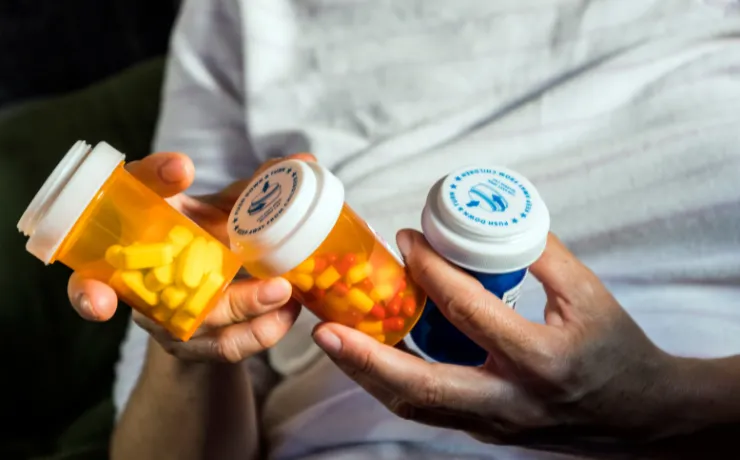Top Medication Myths Debunked by Pharmacists

When it comes to medications, there’s no shortage of advice—some of it good, and some of it completely wrong. Between online articles, social media, and word-of-mouth tips, it’s easy to get confused about what’s safe and what’s not.
That’s why pharmacists play such an important role. They’re medication experts who help separate fact from fiction, ensuring you take your prescriptions safely and effectively.
Let’s take a closer look at some of the most common medication myths—and what pharmacists want you to know about them.
1. Myth: You Can Stop Taking Your Medication Once You Feel Better
Truth: Stopping medication too early can cause more harm than good.
Many patients stop taking their medicine once their symptoms improve. While that might feel logical, it can be dangerous—especially for antibiotics, antidepressants, and blood pressure medications.
For example:
-
Stopping antibiotics early can allow bacteria to survive, leading to infection relapse or antibiotic resistance.
-
Discontinuing antidepressants or blood pressure medication abruptly can cause withdrawal symptoms or rebound effects.
Pharmacist Tip: Always finish your prescribed course unless your doctor or pharmacist advises otherwise. If you’re having side effects, talk to your pharmacist before making any changes.
2. Myth: Over-the-Counter (OTC) Medications Are Completely Safe
Truth: Even nonprescription drugs can cause side effects or interact with other medications.
Just because a medication is available without a prescription doesn’t mean it’s risk-free. OTC pain relievers, allergy medicines, and cold remedies can interact with prescriptions or worsen certain health conditions.
For instance:
-
Some decongestants may raise blood pressure.
-
Antihistamines can cause drowsiness and increase fall risk in older adults.
-
Acetaminophen, if overused, can harm the liver.
Pharmacist Tip: Always let your pharmacist know about all the medications and supplements you take, including OTC products. They can help ensure everything works safely together.
3. Myth: Generic Medications Aren’t as Effective as Brand-Name Drugs
Truth: Generic drugs work just as well as their brand-name counterparts.
Generics contain the same active ingredients, strength, and quality as brand-name medications. They are approved by the FDA and must meet strict safety and effectiveness standards.
The main difference? Cost. Generics are usually less expensive because the manufacturer didn’t have to pay for the original drug’s research and development.
Pharmacist Tip: If you’re prescribed a brand-name drug, ask your pharmacist if a generic equivalent is available—it can save you money without compromising results.
4. Myth: You Should Always Take Medication on an Empty Stomach
Truth: Some medications need food to work properly—or to prevent stomach upset.
The label “take with food” isn’t just a suggestion. Food can help your body absorb certain drugs better or protect your stomach lining from irritation.
On the other hand, some medications work best when taken on an empty stomach.
Pharmacist Tip: Always follow the directions on your prescription label or ask your pharmacist if you’re unsure. Taking your medicine at the wrong time can affect how well it works.
5. Myth: Natural or Herbal Products Are Always Safe
Truth: “Natural” doesn’t always mean “harmless.”
Herbal and dietary supplements can interact with prescription medications and cause unwanted side effects. For example:
-
St. John’s Wort can reduce the effectiveness of antidepressants or birth control pills.
-
Ginkgo biloba can increase bleeding risk when taken with blood thinners.
-
Some supplements can raise blood pressure or affect heart rate.
Pharmacist Tip: Always tell your pharmacist about any herbal or natural products you take. They can check for potential interactions and suggest safer alternatives if needed.
6. Myth: Crushing or Splitting Pills Is Always Okay
Truth: Some pills are designed to be swallowed whole for safety and effectiveness.
Certain medications, such as extended-release or enteric-coated tablets, are specially formulated to release medicine slowly or protect your stomach. Crushing or splitting them can:
-
Release too much medication at once.
-
Cause side effects.
-
Make the medication less effective.
Pharmacist Tip: Never alter your medication unless instructed. If you have trouble swallowing pills, your pharmacist can recommend alternative forms like liquids, chewables, or smaller tablets.
7. Myth: You Can Take Other People’s Prescriptions if You Have the Same Symptoms
Truth: Sharing medications is never safe.
Even if you and a friend have similar symptoms, your health conditions, allergies, and medical history may be completely different.
Taking someone else’s prescription can:
-
Cause unexpected side effects.
-
Lead to incorrect dosing.
-
Delay proper diagnosis of your condition.
Pharmacist Tip: Always get your own prescription after consulting a healthcare professional. What works for one person might not be right—or safe—for another.
8. Myth: Alcohol and Medication Don’t Mix Only with Antibiotics
Truth: Alcohol can interact with many medications—not just antibiotics.
Drinking while taking medication can make you drowsy, increase side effects, or reduce how well the medicine works.
For example:
-
Painkillers and alcohol can strain the liver.
-
Sleep aids combined with alcohol can slow your breathing.
-
Diabetes medications may cause dangerous drops in blood sugar.
Pharmacist Tip: Always ask your pharmacist whether alcohol is safe with your medications. When in doubt, it’s best to avoid it.
9. Myth: You Can Skip Doses if You’re Feeling Fine
Truth: Skipping doses can prevent your medication from working properly.
Some medicines need to be taken consistently to maintain steady levels in your body. Skipping doses can lead to uncontrolled blood pressure, irregular blood sugar, or worsening symptoms.
Pharmacist Tip: Use reminder apps, pill boxes, or pharmacy refill synchronization to help you stay on schedule. Consistency is key to effective treatment.
10. Myth: All Medications Work the Same for Everyone
Truth: Every person’s body is unique.
Your age, weight, genetics, diet, and other medications can all affect how your body responds to treatment. That’s why what works for someone else might not be the right fit for you.
Pharmacist Tip: If your medication isn’t working as expected, don’t stop taking it—talk to your pharmacist or provider. They can review your treatment and suggest adjustments if needed.
Why Pharmacists Are the Best Source for Medication Facts
Pharmacists are trained professionals who understand how medications interact and affect the body. They’re accessible, knowledgeable, and available to answer questions—no appointment needed.
Here’s what your pharmacist can help you with:
-
Clarifying instructions and dosage.
-
Checking for drug or food interactions.
-
Managing side effects.
-
Recommending safe over-the-counter options.
-
Providing tips to improve adherence and outcomes.
Whenever you hear something about a medication that sounds uncertain, ask your pharmacist before making any changes. Reliable information can make all the difference in staying safe and healthy.
The Bottom Line
Medication myths can be misleading—and sometimes dangerous. Your pharmacist is your best resource for accurate, evidence-based information.
By consulting your pharmacist, you can:
-
Use medications safely.
-
Avoid harmful interactions.
-
Get the most benefit from your treatment.
The next time you have a question or concern about your prescriptions, don’t hesitate to stop by your pharmacy. Your pharmacist is there to guide you every step of the way.

Need Assistance?
Need expert pharmacy advice? Request a call, and our team will assist you with prescriptions, refills, or medication questions at your convenience!
